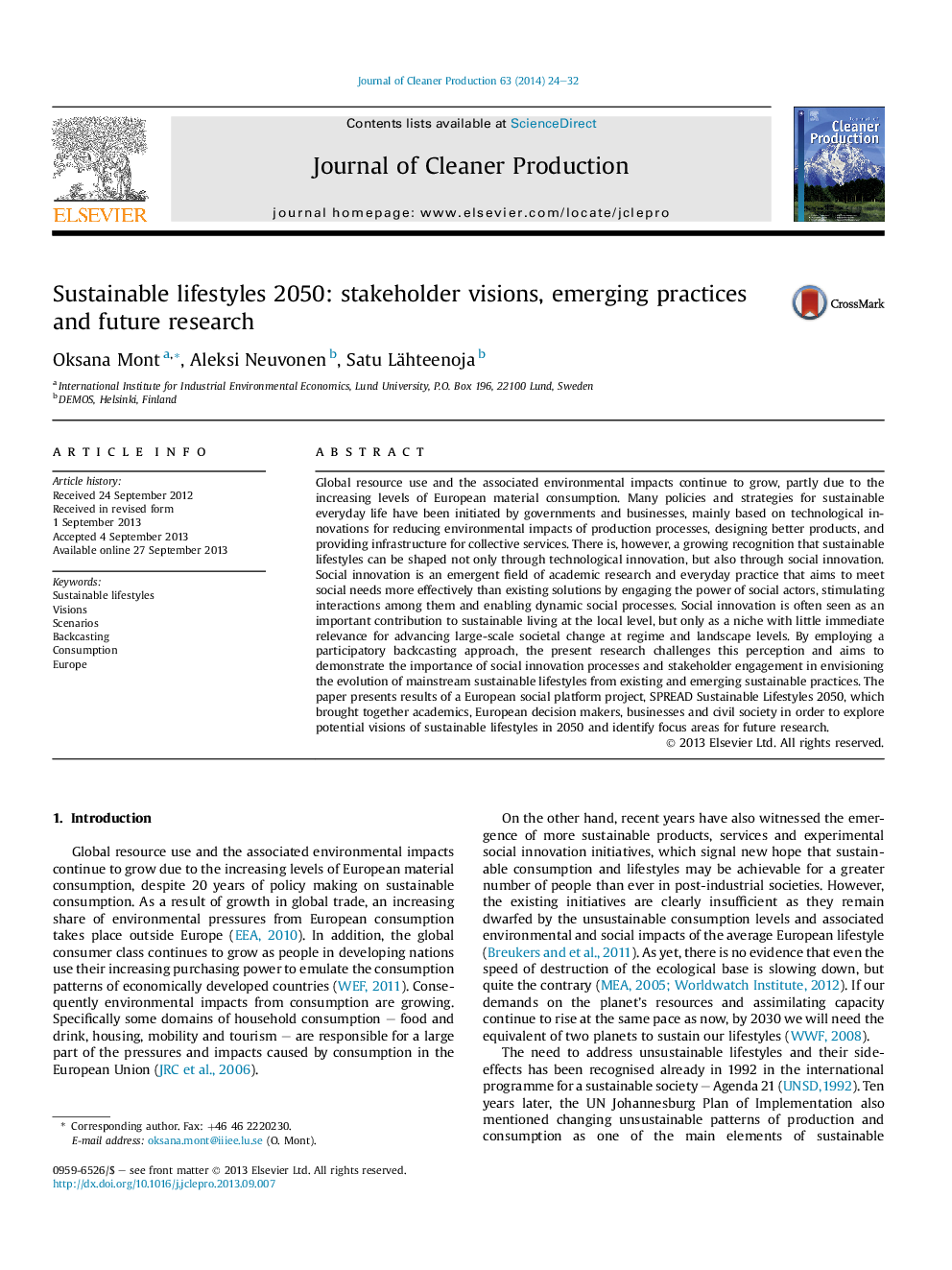| Article ID | Journal | Published Year | Pages | File Type |
|---|---|---|---|---|
| 1745095 | Journal of Cleaner Production | 2014 | 9 Pages |
Global resource use and the associated environmental impacts continue to grow, partly due to the increasing levels of European material consumption. Many policies and strategies for sustainable everyday life have been initiated by governments and businesses, mainly based on technological innovations for reducing environmental impacts of production processes, designing better products, and providing infrastructure for collective services. There is, however, a growing recognition that sustainable lifestyles can be shaped not only through technological innovation, but also through social innovation. Social innovation is an emergent field of academic research and everyday practice that aims to meet social needs more effectively than existing solutions by engaging the power of social actors, stimulating interactions among them and enabling dynamic social processes. Social innovation is often seen as an important contribution to sustainable living at the local level, but only as a niche with little immediate relevance for advancing large-scale societal change at regime and landscape levels. By employing a participatory backcasting approach, the present research challenges this perception and aims to demonstrate the importance of social innovation processes and stakeholder engagement in envisioning the evolution of mainstream sustainable lifestyles from existing and emerging sustainable practices. The paper presents results of a European social platform project, SPREAD Sustainable Lifestyles 2050, which brought together academics, European decision makers, businesses and civil society in order to explore potential visions of sustainable lifestyles in 2050 and identify focus areas for future research.
